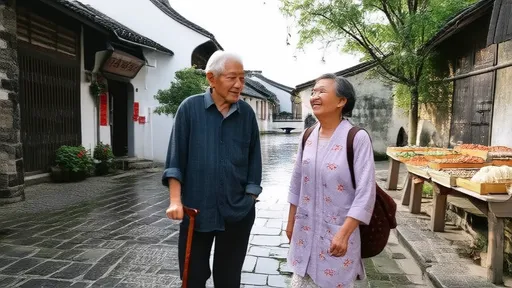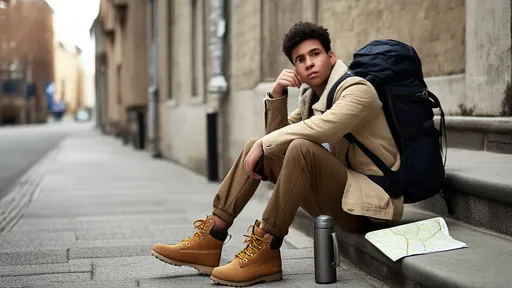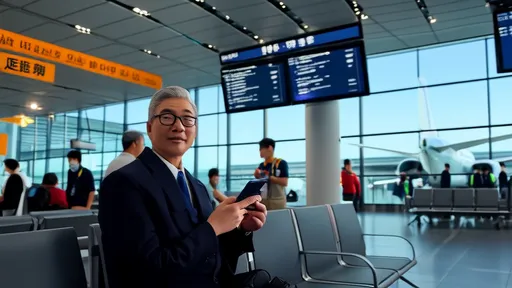Travel fatigue is an all-too-familiar companion for many globetrotters, sapping the joy and energy from what should be exhilarating adventures. Whether you're navigating bustling airports, adjusting to new time zones, or simply enduring long hours in transit, the physical and mental toll can be significant. Yet, with thoughtful preparation and mindful practices, it's entirely possible to maintain your vitality and enthusiasm throughout your journey. The key lies in understanding your body's needs and adopting strategies that promote sustained energy and well-being.
One of the most effective ways to combat travel fatigue begins before you even set foot outside your home. Prioritizing rest in the days leading up to your departure can build a crucial buffer against exhaustion. Many travelers make the mistake of cramming last-minute tasks, leading to sleepless nights and starting their trips already drained. Instead, aim for a full night's sleep for several nights prior to traveling. This foundation of rest will help your body better handle the stresses of travel, from cramped seats to irregular schedules.
Hydration plays an often-underestimated role in maintaining energy levels during travel. The dry air in airplane cabins, combined with the temptation to consume dehydrating beverages like coffee or alcohol, can quickly lead to fatigue, headaches, and overall malaise. Make a conscious effort to drink plenty of water throughout your journey, carrying a reusable water bottle to refill after security checks. Herbal teas and electrolyte-enhanced drinks can also be valuable allies in keeping your hydration levels optimal, especially during long flights or in hot climates.
Nutrition is another cornerstone of travel vitality. It's easy to succumb to the convenience of fast food or skip meals altogether when navigating busy travel schedules, but these choices can lead to energy crashes and digestive discomfort. Packing healthy snacks like nuts, fruits, or granola bars provides a reliable source of sustained energy. When dining out, seek balanced meals that include protein, healthy fats, and complex carbohydrates. These nutrients work together to stabilize blood sugar levels and prevent the lethargy that often follows sugary or heavily processed foods.
Movement is medicine, even when you're confined to a small space. Prolonged sitting can lead to stiffness, poor circulation, and increased fatigue. Make it a point to stretch and walk whenever possible. On flights, take brief walks down the aisle every hour or two, and perform simple seated exercises like ankle circles and shoulder rolls. During layovers, use the time to explore the terminal on foot rather than remaining stationary. These small bursts of activity stimulate blood flow, reduce muscle tension, and reinvigorate both body and mind.
Mindfulness and mental breaks are equally important for sustaining travel energy. The constant stimulation of new environments, languages, and logistics can be mentally exhausting. Incorporating short periods of quiet reflection or meditation can help reset your nervous system and prevent overwhelm. This might involve closing your eyes and focusing on your breath for a few minutes, listening to calming music, or simply observing your surroundings without judgment. These practices can reduce stress hormones and create a sense of calm amidst the chaos of travel.
Smart packing can significantly reduce physical strain and preserve energy. Overburdening yourself with heavy luggage leads to unnecessary exertion and can leave you fatigued before your journey truly begins. Opt for lightweight, versatile clothing and limit yourself to essentials. Rolling clothes instead of folding can maximize space and minimize wrinkles, while packing cubes help organize items efficiently. Remember that less is often more when it comes to luggage; every pound you shed is energy conserved for the experiences that matter most.
Sleep management during travel requires special attention, particularly when crossing time zones. Jet lag can disrupt your circadian rhythm, leading to insomnia, daytime sleepiness, and general irritability. Gradually adjusting your sleep schedule before departure can ease this transition. If traveling east, try going to bed an hour earlier each night for a few days beforehand; if heading west, shift your bedtime later. Upon arrival, expose yourself to natural sunlight during daytime hours to help reset your internal clock. For short trips, maintaining your home sleep schedule might be more practical than fully adapting to the new time zone.
Creating comfortable travel conditions can make a substantial difference in how you feel throughout your journey. Invest in quality travel accessories like neck pillows, noise-canceling headphones, and eye masks to improve rest during transit. Dress in layers to accommodate fluctuating temperatures, and choose comfortable shoes that support your feet during long periods of walking or standing. These small comforts can transform a draining experience into a tolerable, or even enjoyable, one.
Social interactions while traveling can either drain or replenish your energy, depending on how they're managed. Setting healthy boundaries around social engagement allows you to conserve energy for the experiences that matter most to you. It's perfectly acceptable to decline invitations or take alone time when needed. Conversely, positive social connections can be incredibly energizing; sharing laughter and stories with fellow travelers or locals often provides an emotional boost that counteracts physical tiredness.
Finally, remember to build flexibility into your itinerary. Over-scheduling can lead to what's known as "travel burnout," where every moment becomes a rushed obligation rather than a enjoyable experience. Leave room for spontaneity and rest in your plans. Maybe that means scheduling a free afternoon after a morning of sightseeing, or choosing to spend an extra day in a location that particularly energizes you. Listening to your body's signals and allowing yourself to slow down when needed is not a failure in travel planning—it's a strategy for sustained enjoyment.
Travel fatigue may be common, but it doesn't have to define your adventures. By adopting these holistic approaches to maintaining your vitality—from physical preparation to mental mindfulness—you can preserve the enthusiasm and energy that make travel so rewarding. The art of sustained travel energy lies not in pushing through exhaustion, but in cultivating practices that honor your body's needs while embracing the joy of discovery. With thoughtful attention to these principles, you can transform travel from a draining obligation into an endlessly renewing source of inspiration and vitality.

By /Aug 22, 2025

By /Aug 22, 2025

By /Aug 22, 2025

By /Aug 22, 2025

By /Aug 22, 2025

By /Aug 22, 2025

By /Aug 22, 2025

By /Aug 22, 2025

By /Aug 22, 2025

By /Aug 22, 2025

By /Aug 22, 2025

By /Aug 22, 2025

By /Aug 22, 2025

By /Aug 22, 2025

By /Aug 22, 2025

By /Aug 22, 2025

By /Aug 22, 2025

By /Aug 22, 2025

By /Aug 22, 2025

By /Aug 22, 2025